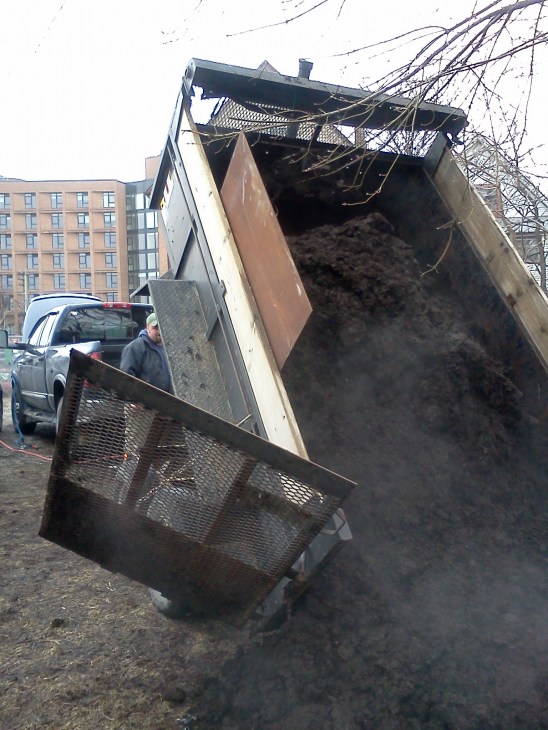I’ve packed on some extra weight since we had a couple of kids (less hockey and gym trips; more convenience meals) and I’m trying to get rid of it by eating more fresh produce and increasing my activity. I also want my kids to eat healthy as they grow up, including lots of fresh produce. One of the steps we’re taking to accomplish both gaols is to dedicate some space in our backyard for a vegetable and herb garden. We’ll probably try some tomatoes, peppers, leafy greens and some other stuff and hopefully this activity will inspire Jack (our two-year-old) to eat more than grilled cheese sandwiches and apple sauce.
Anything that comes in contact with the produce in our garden (animals, water, hands and fertilizer) can lead to contamination that’s not going to be killed from cooking — and we probably wont be able to wash it off. Things will get pretty nerdy around here as I do what I can to keep the stuff as safe as possible. We’ll be using city water; putting up some animal exclusion barriers; doing a lot of handwashing; and, won’t be using animal manure unless it’s composted correctly — not sure how hard it will be to find that yet.
Catherine Porter of The Toronto Star wrote today about taking gardening to a whole new step and the urban farming activities of an entrepreneur, Erica Lemieux of City Seed Farms, who is using family backyards around her neighborhood to produce fruits and vegetables she’ll be selling to restaurants and at a farmers’ market.
“The backyards here are just asking to be farmed,” she says, leading me around to the back of a giant house on High Park Ave. and down its long yard, where she is double-digging beds for her first crop of vegetables.
That’s right, crop. Lemieux isn’t a gardener, she’s an urban farmer. Starting next month, she’ll be delivering her Easter egg radishes and sugar snap peas to west end restaurants and the Sorauren Farmers’ Market near Dundas W. and Lansdowne Ave.
The inspiration for Lemieux’s City Seed Farms came last summer as she was visiting an urban farmer growing food in backyards around Kelowna. She rushed home, printed a brochure and dropped it off at houses in her High Park neighbourhood. Within a few days she had 11 offers from homeowners willing to part with pieces of their sunny yards in exchange for a weekly basket of produce.
“They have the land but no time. I have lots of time but no land,” says Lemieux, 26.
 I like Lemieux’s drive to connect people to their foods — that’s a good thing that can result in better discussion around production, risks and and the trade-offs food producers make when growing and selling their wares. This is a pretty cool business idea and I hope that she also takes microbial food safety into account — to protect her customers and the business. It would be good to know, as a potential buyer (whether for the home or commercial kitchen), what she does to reduce risks carried by animals, water, fertilizer and hands. Especially the hands of any of the kids who might live at or visit her production sites. And how she passes risk reduction information on to the homeowners. City Seed Farms has a pretty nice blog detailing the plans and activities as the growing season begins, including a post showing a dump truck full of manure that’s going to be used as fertilizer — I hope it was composted (and properly). Would be great to see some food safety info up on the City Seed Farms website.
I like Lemieux’s drive to connect people to their foods — that’s a good thing that can result in better discussion around production, risks and and the trade-offs food producers make when growing and selling their wares. This is a pretty cool business idea and I hope that she also takes microbial food safety into account — to protect her customers and the business. It would be good to know, as a potential buyer (whether for the home or commercial kitchen), what she does to reduce risks carried by animals, water, fertilizer and hands. Especially the hands of any of the kids who might live at or visit her production sites. And how she passes risk reduction information on to the homeowners. City Seed Farms has a pretty nice blog detailing the plans and activities as the growing season begins, including a post showing a dump truck full of manure that’s going to be used as fertilizer — I hope it was composted (and properly). Would be great to see some food safety info up on the City Seed Farms website.
